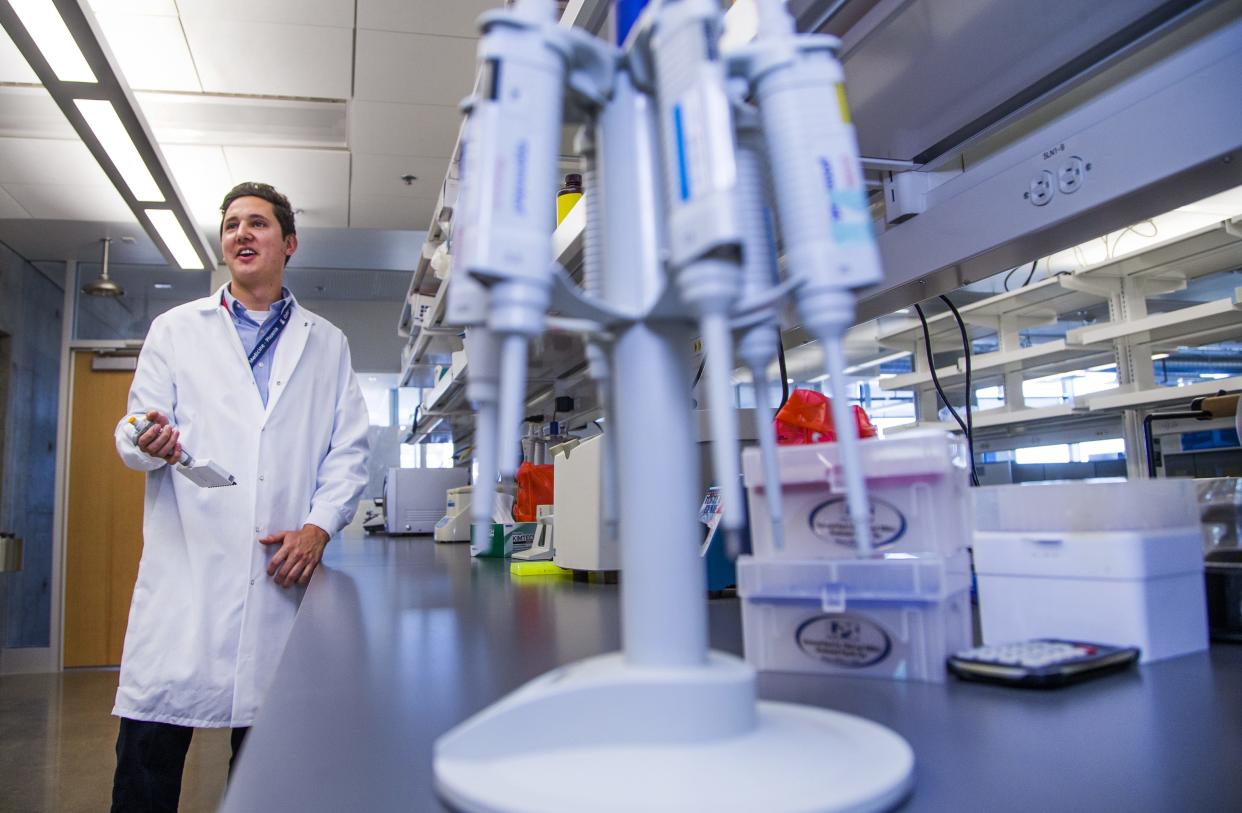This federal rule change could kill UA research — and cost Arizona billions

A proposal that gives federal government great powers on the relicensing of patents could inadvertently suppress research — including by Arizona’s world-class universities — and hurt local startups and small businesses.
Officials at the National Institute of Standards and Technology, or NIST, are trying to change how the federal government implements a hugely influential, 43-year-old law that empowers universities to patent their federally funded discoveries and license them to private companies.
Absent this ability, many world-changing innovations — from therapeutics to medical devices and more — would never reach the public.
The proposed changes would deter companies from licensing those research discoveries — thereby jeopardizing a system that supports tens of thousands of high-tech jobs for Arizonans and spurs billions in economic activity.
The old system stymied new technology
Tech Launch Arizona, the organization I lead, works on a daily basis with companies to license the University of Arizona’s patented discoveries and develop them into products that improve, even save, Americans’ lives.
As we recently warned in a public comment letter to NIST, this new policy could kill much of this beneficial licensing activity.
To see the consequences clearly, we have to look back nearly 50 years.
In the 1970s, the federal government was devoting billions to basic research, much of it at university labs. The research the government funded resulted in thousands of discoveries and inventions.
But Washington retained the patent and licensing rights — and typically refused to grant “exclusive” licenses to companies that could have turned the research discoveries into useful products for consumers and businesses.
Fewer than 5% of nearly 30,000 government-held patents were licensed.
The system discouraged the further development of countless new medicines and technologies.
University patents generate billions in Arizona
The Bayh-Dole Act, passed in 1980, aimed to restore American technological leadership and revive our moribund innovation ecosystem. The act allowed universities and researchers to retain those intellectual property rights, and provided incentives for investors and licensees to help move these ideas into the marketplace.
Bayh-Dole exceeded all expectations. More than 17,000 startups emerged from it — and today the act is credited with supporting 6.5 million jobs.
In Arizona alone, Tech Launch has secured since our inception in 2012 more than 600 patents for inventions from our brilliant researchers and spun off more than 130 startups.
Just in the five-year span between 2017-2021, this activity has contributed more than $1.6 billion to our state’s economy. Our license partners are working to commercialize revolutionary inventions, including:
Nontoxic batteries made of metal-free electrolytes.
Improved brain cancer treatments.
Water-saving, vertical farming methods.
Quantum-enhanced gyroscopes.
Thermal energy storage using molten salt.
NIST would allow government to march in
Over the next 10 years, we’re projected to generate another $4.7 billion in economic output and more than $172 million in tax revenues for our state.
Now, however, the National Institute of Standards and Technology has essentially proposed that federal agencies have greater flexibility to “march-in” and relicense patents when a product’s price is challenged.
This change could hurt: Critical cancer research
This change would constitute a huge departure from precedent and would flout congressional intent. The federal government has never asserted this march-in authority based solely on the price of an already developed product.
Indeed, price is mentioned nowhere in the legislative text as a potential trigger for march-in, and the law’s drafters, Sens. Birch Bayh, D-Ind., and Bob Dole, R-Kansas, explicitly stated that “this omission was intentional.”
Why is this so important?
Change could undermine UA's research
Entrepreneurs and investors are willing to take a chance on risky technologies only if they are certain they can reap the rewards of any successful efforts.
If patents that touched federal research funding come with the risk that the government can step in if it doesn’t agree with the pricing set by the company, Tech Launch Arizona and similar institutions nationwide will find it much harder to identify partners willing to take a chance on bringing inventions to market.
The proposal doesn’t just affect the funding of university research. Any federal funding — including Small Business Innovation Research and Small Business Technology Transfer program funding — would be impacted.
The march-in proposal would undermine the work of University of Arizona researchers and our community of entrepreneurs.
President Biden can still direct his Department of Commerce to reverse course before the proposed guidance becomes final.
For the sake of thousands of world-changing products that are still early in the R&D pipeline, let’s hope he does so.
Doug Hockstad is associate vice president for Tech Launch Arizona at the University of Arizona. Reach him at douglash@tla.arizona.edu.
This article originally appeared on Arizona Republic: University of Arizona patents generate billions. NIST could yank them

